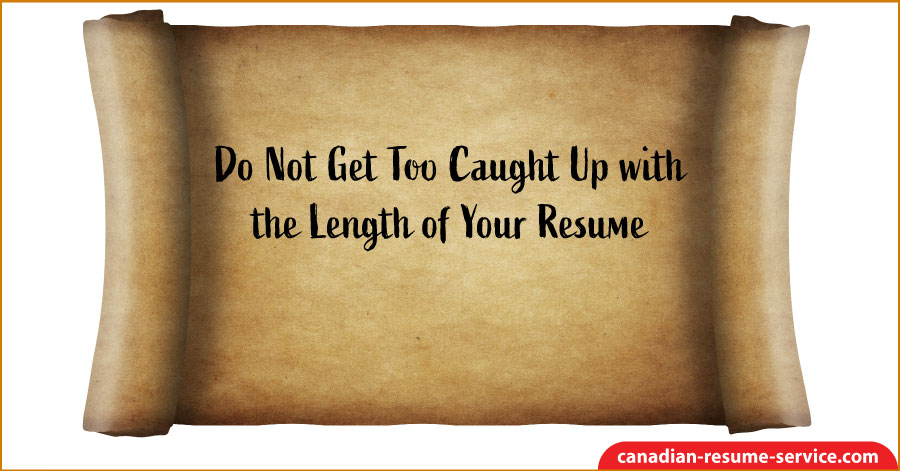One of the most asked questions about resume writing is how long a resume should be. The answer varies, so do not get too caught up in the length of your resume.
The One-Page Myth
You may have heard somewhere that your resume needs to be one page. This is not necessarily true. Your resume must be long enough to provide hiring personnel or recruiters with all the critical information necessary to get your foot in the door for an interview. Your resume may need one, two, or even three pages to achieve this.
Recruiters and hiring managers don’t necessarily care about the length of your resume. They care about whether or not it is easily readable and whether or not they can find your relevant information. So unless they specify the length of your resume needs to be in the job posting, your resume should reflect the amount of experience and skills you have.
The Right Length
If you’d like a rule of thumb for the appropriate length for your resume, remember that the length has to do with what applies to your career background. That means your years of experience will ultimately determine the length of your resume.
If you have less than five years of work experience, the general rule is that you should only need one page. More than five years, and you will likely need two pages. If you’ve had a long career or have a lot of extra information you need to include, like presentations, grants, and professional development courses, you may need three pages to list it all.
Skip Irrelevant Information
A common mistake that many job seekers make is thinking that they have to list every past position on their resume. Most employers are only interested in your relevant job history, so you can skip any experience related to your field.
If you lack experience, you can tailor your past experiences to sound relevant to employers. If you have past jobs that may have included some responsibilities and tasks related to the position, highlight these facts and delete the unimportant ones.
Employers want to see your specific characteristics, skills, and work ethic. Highlighting these in unrelated jobs can benefit you.
However, omit any job experiences you are not proud of or that are irrelevant. If you think they are unimportant or even possibly detrimental, then chances are you’re correct. Don’t include job experience from when you were a teenager. Your expertise should only go so far back. Use your judgment, but if you don’t think your fast food experience will help you land a corporate job, it probably won’t.
Don’t be overly concerned about the number of pages. It is much better to have a two-page resume that is easily readable and laid out than a one-page resume with lots of information jammed into a confined space. Incorporating white space in a resume is essential to get attention.
Need additional help? Reach out to Candace for assistance!

